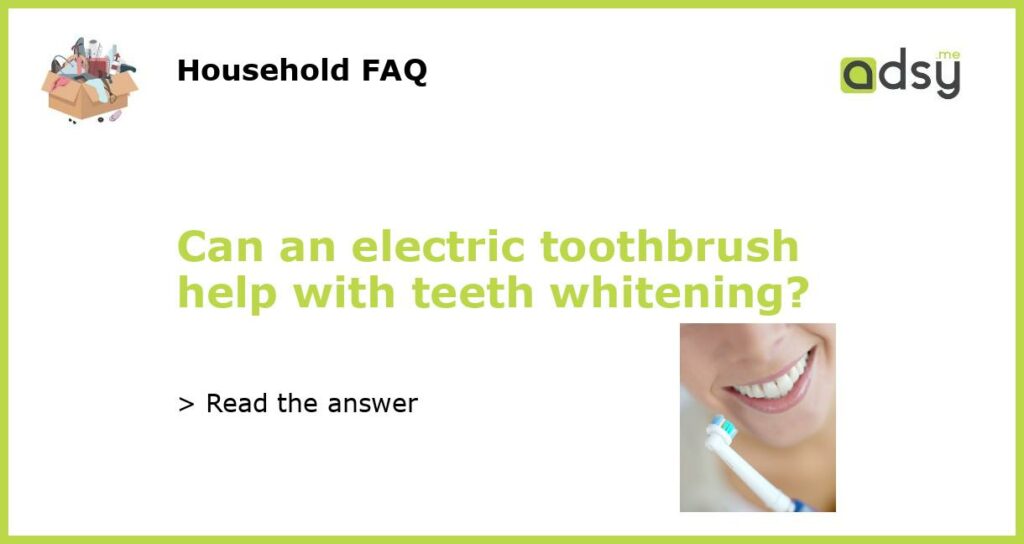Understanding Teeth Whitening
Having pearly white teeth is a desire that many people have. It is a sign of good oral hygiene and can boost confidence. Teeth whitening is a popular cosmetic procedure that can help to remove stains and improve the shade of your teeth. While regular brushing, flossing, and dental cleanings can aid in preventing yellowing, the use of an electric toothbrush is one of the trending methods to brighten your smile. But can it really help in teeth whitening? Let’s find out.
Electric Toothbrush and Teeth Whitening: What’s the Connection?
Electric toothbrushes have the ability to remove more plaque and tartar than a manual toothbrush due to their rapid and rotating movement. When it comes to teeth whitening, electric toothbrushes are designed to make the process more efficient. Most electric toothbrushes come with special modes like a polishing mode or whitening mode, which can let users customize their brushing experience with a focus on whitening teeth. These modes help remove surface stains caused by external factors such as smoking, coffee or wine. However, electric toothbrushes may not be effective when it comes to intrinsic stains or deep rooted staining caused by aging, certain medications, or excessive fluoride intake.
The Pros and Cons of Using an Electric Toothbrush for Teeth Whitening
Using an electric toothbrush for teeth whitening comes with its own advantages and disadvantages. On the positive side, an electric toothbrush can remove more plaque than a manual toothbrush, which can aid in the prevention of surface staining. An electric toothbrush may also be more comfortable for people with limited mobility or weakened grip due to arthritis. Furthermore, electric toothbrushes are designed to be more efficient than a manual toothbrush by having timed brushing session and pressure regulation features. Accuracy in brushing and adopting the recommended time using a timer can give adequate and moderate pressure that will give teeth whitening desirable result.
But there are also a few drawbacks to using an electric toothbrush. One significant disadvantage is the cost. Electric toothbrushes are pricier than manual toothbrushes. Also, they require an energy source, which can make them less portable. Additionally, electric toothbrushes can cause sensitivity to the teeth and gums if used with too much pressure.
The Bottom Line
If you’re looking for a teeth whitening solution, an electric toothbrush can help, but it is important to bear in mind the type of staining you are suffering from. Surface stains caused by tobacco, coffee, tea or wine can be removed effectively by electric toothbrushes, but intrinsic staining will require additional dental treatments. Moreover, dentists advise that electric toothbrushes should be used in conjunction with other teeth whitening products or dental procedures for optimal results.
The Right Toothbrush for You
Good oral health goes beyond just brushing your teeth. Teeth whitening can be a part of your daily dental routine and an electric toothbrush can help get the job done efficiently. Consider the pros and cons before making your choice, however. When it comes to teeth whitening, it’s essential to make the right choices so that you can achieve that sparkling smile that you’ve always wanted.






